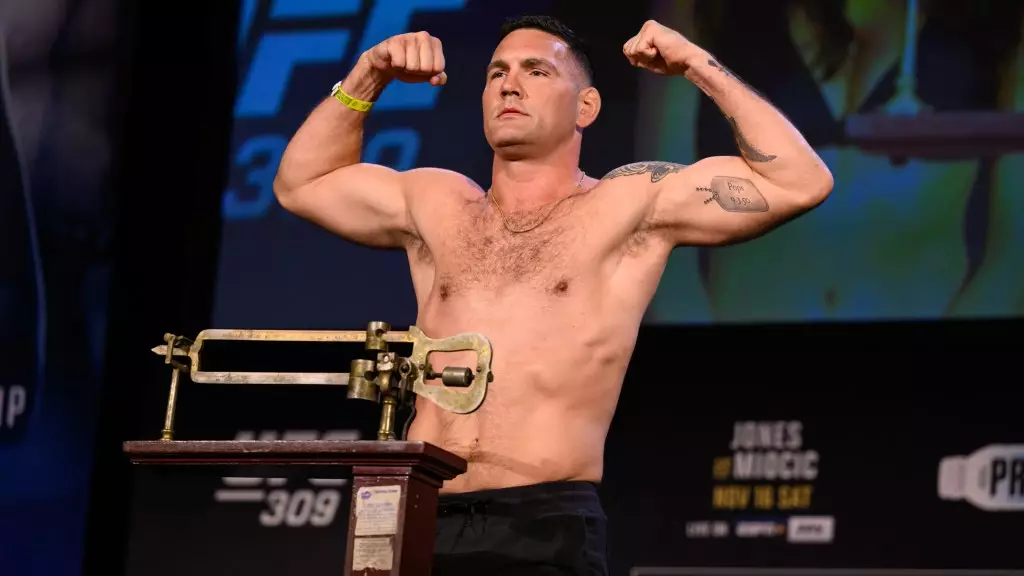The world of mixed martial arts often thrives on unpredictability, and no one knows this better than Chris Weidman. Recently, the fighter found himself at the center of a troubling situation when his scheduled fight against Eryk Anders at UFC 309 was abruptly called off. This shocking turn of events happened less than two weeks before the event, right at the pinnacle of preparation for Weidman. The cancellation stemmed from Anders falling ill, leading to his inability to secure medical clearance.
This last-minute decision not only put a wrench in Weidman’s plans but also disrupted the arrangements of friends and family who had traveled to Madison Square Garden to support him. The emotional toll of such cancellations can be profound, and Weidman openly expressed the difficulties he faced despite the UFC’s attempts to rectify the situation.
In the wake of the cancellation, an underlying issue arose regarding compensation. Weidman clarified that while he is grateful for the UFC’s efforts to assist him, he feels disappointed by the decision to not pay him his full purse. UFC fighters typically receive a base salary along with incentives for winning, making the financial implications of a fight cancellation substantial. Although the UFC attempted to find him an alternative opponent that day, regulations from the New York commission prevented any last-minute matchups, further complicating matters.
During an appearance on “The Ariel Helwani Show,” Weidman articulated his perspective on why he believes he deserves his full payment. He stated, “I showed up, you guys had that on the budget sheet to begin with,” emphasizing his belief that rewarding fighters for their readiness is crucial to maintaining trust and fairness within the sport. His sentiments reflect a broader concern that resonates within the MMA community, where last-minute cancellations can dramatically impact a fighter’s financial status and future opportunities.
Resilience is a hallmark of any successful athlete, and Weidman’s situation is no exception. Despite the frustrations surrounding UFC 309, the former middleweight champion is slated to face Eryk Anders at UFC 310 on December 7 at T-Mobile Arena in Las Vegas. This fight represents a critical moment for Weidman as he aims to reclaim his status in the Octagon while also recovering from the emotional aftermath of the cancellation.
Moving forward, Weidman and fellow fighters may find it imperative to advocate for clearer policies regarding compensation during unexpected cancellations. As the sport continues to grow, ensuring that fighters are treated fairly and with respect for their preparations will be essential in fostering a positive environment. For Weidman, the anticipation of his upcoming fight holds a chance not only for redemption but also for reestablishing his position within the highly competitive realm of mixed martial arts.
In a world where uncertainty is the norm, Weidman’s story serves as a poignant reminder of the human elements intertwined within the sport, highlighting both the expectations and the disappointments that accompany the life of a fighter.

